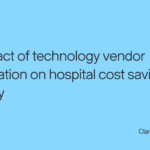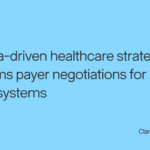Diabetes is one of the most significant public health challenges of our times. In recognition of National Public Health Week (NPHW), the Clarify Health Institute examined Clarify’s enriched commercial and Medicaid claims data to increase awareness of type 2 diabetes and highlight the importance of prevention and disease management. Each year APHA brings together communities across the US to observe National Public Health Week (NPHW). NPHW is recognized by industry leaders and government officials all the way up to President Joe Biden as a time to recognize the contributions of public health and highlight issues that are important to improving our nation’s health. The focus of the 2023 NPHW is “Centering and Celebrating Cultures in Health” to ensure everyone has access to the care, therapies, and resources needed to live a long and healthy life. To do so, we must address and prevent the underlying causes of poor health and disease risk. To support NPHW, the Clarify Health Institute conducted research into the impact of diabetes on the US healthcare system. Statistics from the American Diabetes Association reveal that over 37.3 million Americans are affected by diabetes, and the total annual cost of diagnosed diabetes in the United States has reached $327 billion. An additional 96 million American adults have prediabetes, with national surveys indicating only one in five are aware of their condition. These striking numbers emphasize the need to educate the population about the risks and economic burden of this disease. To underscore the impact of type 2 diabetes and promote evidence-based management, the Clarify Health Institute (CHI) has completed a review of commercial and Medicaid insurance claims for approximately 29 million American adults from July 2021 to July 2022. Our analysis uncovers substantial gaps in the utilization of recommended, evidence-based treatments for individuals with type 2 diabetes. In addition to patient characteristics and utilization metrics, our investigation assesses three quality of care metrics specific to diabetes management: The results indicate that inadequately managed diabetes and associated complications persist as a substantial challenge. Our empirical findings, shown in the figure below, also highlight the substantial clinical burden of type 2 diabetes on the US healthcare system. Limiting the findings to adult patients insured through either a commercial or Medicaid-managed care plan, our estimates provide a comparison of patients without diabetes, patients with diabetes, and patients with diabetes either with or without complications in terms of patient characteristics, utilization metrics, and quality of care metrics. Clarify claims data show that patients with diabetes, on average have four times the number of chronic conditions and greater healthcare utilization, including more physician office visits (averaging 8.0 vs. 4.6 visits), emergency room visits (0.7 vs. 0.4 visits), and overall annual utilization estimated using Clarify standard dollar amounts4 ($10,121 vs. $3,991) than those without diabetes. Patients with diabetes also tend to be older, with a higher proportion being male. In the population of patients with diabetes, analyses point to substantial gaps in the quality of care for many patients. In particular, large proportions of patients with diabetes are not receiving twice-annual HBA1C blood testing and regular eye exams to prevent complications and progressions. Notably, patients with diabetes and complications tend to have better adherence to HBA1C testing (46% vs. 35%) and retinopathy screening (49% vs. 36%) compared to those without complications. In terms of medication management, patients with complications also have higher rates of receiving oral anti-diabetic medications than those without complications. Overall, this data reinforces the importance of close monitoring and management of diabetic patients, especially those at risk for complications, to ensure appropriate utilization of healthcare resources and adherence to quality-of-care metrics. To alleviate the clinical and economic impact of type 2 diabetes, a focus on prevention, early detection, and management is essential. Fortunately, there are several steps individuals can take to protect themselves and reduce their risk of diabetes, such as: Health systems and payers also have a critical role in promoting population health and reducing the incidence of diabetes. Timely and appropriate management of diabetes can also help mitigate complications and poorly controlled diabetes, encompassing frequent glucose monitoring, regular screenings for retinopathy, nephropathy, and neuropathy, as well as employing evidence-based medications and treatments. During National Public Health Week, let’s commit to raising awareness, promoting prevention, and improving the quality of care for those living with diabetes. We can work together to reduce the burden of diabetes on patients and the healthcare system.What is National Public Health Week?
Celebrating National Public Health Week through Diabetes Research
Promoting Awareness, Prevention, and Management of Type 2 Diabetes
Examining the substantial clinical and cost burden of type 2 diabetes on the US healthcare system
Steps to alleviate the clinical and economic impact of type 2 diabetes
Footnotes: ¹ Diabetes testing adherence: The percentage of patients with diabetes who received at least two HbA1c tests during the study year. Regular HbA1c testing is crucial for monitoring blood sugar levels and ensuring proper diabetes management. ² Screening for diabetic retinopathy: This metric assesses the percentage of patients with diabetes who received an eye exam, fundus photography, or fluorescein angiography as recommended over the past two years. Regular eye exams are essential for early detection and treatment of diabetes-related retinal neuropathy. 3 Diabetic patients treated with oral antidiabetic medications: This measure calculates the ratio of diabetic patients with at least 30 days of any oral antidiabetic medication to the total diabetic patient population with prescription data. Oral antidiabetic medications are a critical component of diabetes management for many patients. 3 Diabetic patients treated with oral antidiabetic medications: This measure calculates the ratio of diabetic patients with at least 30 days of any oral antidiabetic medication to the total diabetic patient population with prescription data. Oral antidiabetic medications are a critical component of diabetes management for many patients. 4 Clarify standard amounts are calculating applying Clarify’s standardization methods, aggregating and standardizing across all healthcare services provided during the study year to produce a single monetary measure of resource use. The Clarify Health Institute is the research arm of Clarify Health, an enterprise analytics and value-based payments platform company. It leverages Clarify’s data assets, including claims, clinical, and social determinants of health data across 300 million patient journeys to shine a light on important healthcare issues and explore trends. It provides industry leaders, policymakers, academic researchers, the media, and the public unprecedented access to data-driven healthcare insights. To learn more, visit clarifyhealth.com/institute.
- Author Details





